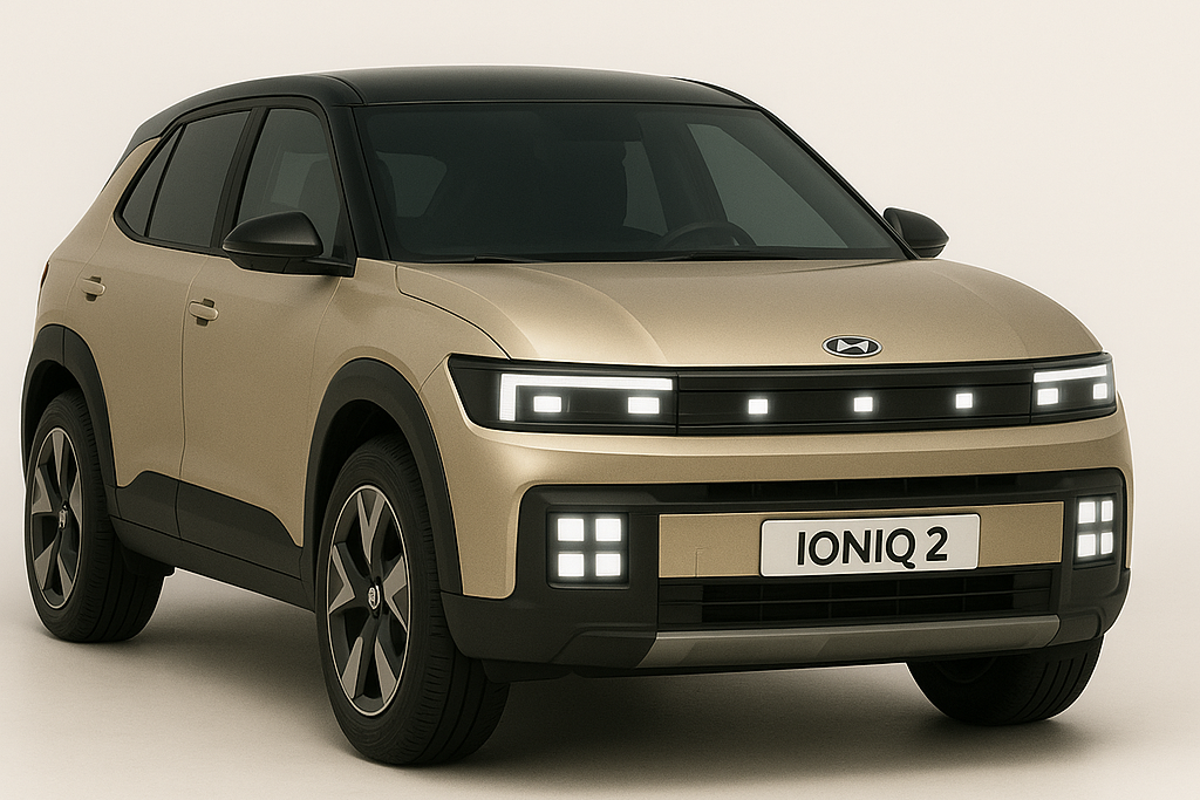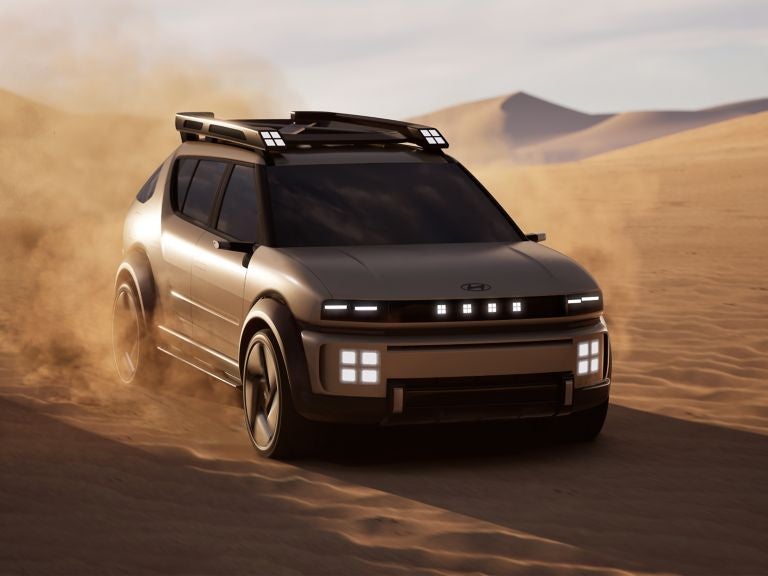
Hyundai will be revealing its latest all-electric model at September’s Munich Motor Show, with the focus not only on the design of the car, but the software that powers it.
Although officially only a concept, the new Hyundai B-segment SUV is expected to be a thinly-disguised clue to what a production model – set to go on sale in the middle of 2026 – will look like. The production car is likely to take the Ioniq name and could possibly be called Ioniq 2.
Our rendering shows what the concept could look like, taking the proportions of the Kia EV2 and applying Hyundai’s latest ‘Art of Steel’ design language introduced on the recent Hyundai Initium concept. It includes a new interpretation of the brand’s signature Parametric Pixels lighting.

Although the new model is expected to use the same E-GMP platform as Ioniqs 5,6 and 9, Hyundai is expected to showcase the brand’s new Pleos software system in the Ioniq 2.
Pleos – which combines the Greek word Pleo meaning more, with OS for Operating system – is an end-to-end software platform that combines high-performance chips and controllers with a vehicle’s operating system (OS), its infotainment system, a cloud infrastructure and fleet management, mobility and logistics solutions.
It’s set to work with Hyundai’s next generation of software defined vehicles (SDVs) to add a whole new range of features to its upcoming new cars including autonomous driving.
Unlike Hyundai’s current operating system, Pleos is based on the Android Automotive Operating System providing a host of new benefits including customisation of the platform, a smartphone-like user interface and access to a wealth of new apps.
The new concept will showcase Hyundai’s latest ‘Art of Steel’ design philosophy, although it’s expected that only the exterior of the car and details of the Pleos software will be revealed in Munich. Further details of the car, including the interior, are likely to be revealed during Milan Art Week in April next year, shortly before the car goes on sale in Europe.
The new car is set to have a strong European flavour and will be built in Europe, according to Xavier Martinet, President and CEO of Hyundai Motor Europe. “Localisation is important,” said Martinet. “In 2024, 79 per cent of Hyundais sold in Europe were made in Turkey or Czech Republic. We want to maintain a high level of EU-built cars.
“Our brand new EV will be built in Turkey – it will be European developed.”
Hyundai’s has just invested €150million in its European technical centre in Germany, led by former Ford man Tyrone Johnson.







